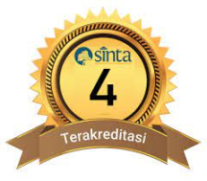Application of the Team Games Tournament (TGT) Type Cooperative Learning Model to Students’ Understanding of Concepts in Stationary Wave Material
Abstract
Full Text:
PDFReferences
Sanjaya, W. (2012). Strategi Pembelajaran Berorientasi Standar Proses Pendidikan. Jakarta: Kencana Prenada Media Group Sardiman, A.M. (2001). Interaksi dan Motivasi Belajar Mengajar. Jakarta: Raja Grafindo Persada.
Permendiknas. (2007). Peraturan Menteri Pendidikan Nasional Nomor 41 Tahun 2007 tentang Standar Proses untuk Satuan Pendidikan Dasar dan Menengah. (hal. Hal. 6). RI.
Mulyasa. (2014). Pengembangan dan Impelementasi Kurikulum 2013. Bandung: PT Remaja Rosdakarya.
Sudjana, & Nana. (2012). Penilaian Hasil Proses Belajar Mengajar. Bandung: PT. Remaja Rosdakarya.
Prihatiningtyas, P. J. (2013). Imlementasi simulasi PhET dan KIT sederhana untuk mengajarkan keterampilan psikomotor siswa pada pokok bahasan alat optik. Jurnal Pendidikan IPA Indonesia, 2 (1).
Sari. (2016). Penggunaan Model Team Games Tournament Pada Penguasaan Konsep Fisika. Jurnal Pendidikan Fisika dan Teknologi, 176.
Gunawan, H. I. (2016). Pengaruh Multimedia Interaktif dan gaya Belajar Terhadap Penguasaan Konsep Kalor Siswa. Jurnal Pendidikan Fisika Indonesia, 118-125.
Ma’rifah, & Sumadi. (2016). Pengaruh Penerapan Media Power Point dalam Pembelajaran Fisika. Pendidikan Fisika FKIP, 97.
Pareken Minarty, D. (2015). Penerpan Model Pembelajaran Berbasis Fenomena Terhadap Keterampilan Berfikir Kritis Dan Hasil Belajar Fisika Peserta Didik Kelas X Sma Negeri 2 Rantepao Kabupaten Toraja Utara. Jurnal Sains dan Pendidikan Fisika (JSPF)., 214-221.
Jumadin, L. (2017). Perlunya Pembelajaran Modeling Instruction Pada Materi Gelombang. Jurnal Pendidikan.
Tipler P. A., M. G. (2008). Physics for Scientists and Engineers. W.H. Freeman and Company.
Kumar. (2020). Advances in acoustic wave sensors. Journal of Applied Physics, 128(12), 120901.
Smith D. R., P. J. (2004). Metamaterials and negative refractive index. Science, 305(5685), 788-792.
Saricayir, H. A. (2016). Determining Students’ Conceptual Understanding Level of Thermodynamics. Journal of Education and Training Studies, 69-79.
Sugiarti. (2012). Pengaruh Penerapan Model Pembelajaran Koopertatif GI Terhadap Pemahaman Konsep Kimia dan Kemampuan Berpikir Kreatif Siswa SMAN 3 Denpasar. Jurnal Penelitian Pascasarjanan UNDIKSHA, Vol.2, No. 1.
Korn. (2014). Teaching Conceptual Understanding of Mathematics via a Hands-On Approach. A Senior Thesis in the Honors Program Liberty University.
Kennedy, H. R. (2009). Learning Outcomes and Competences. Introducing Bologna Objectives and Tools, 73.
Anderson, & Krathwol. (2010). Kerangka Landasan untuk Pembelajran, Pengajaran, dan Asesmen. Yogyakarta: Pustaka Belajar.
Sudaryono. (2012). Dasar-dasar Evaluasi Pembelajaran. Yogyakarta: Graha Ilmu.
Suharsimi. (2008). Dasar-dasar Evaluasi Pendidikan. Jakarta: Bumi Aksara.
Utami. (2013). Perbedaan Jigsaw II dan GI Terhadap Pemahaman Konsep dan Pemecahan Masalah pada Kompetensi Mendiagnosis Permasalahan Pengoperasian PC dan Peipheral ditinjau dari Motivasi Belajar. Jurnal Pendidikan Vokasi, 238.
Sagala. (2010). Konsep dan Makna Pembelajaran . Bandung: Alfabeta.
Ahmed, & dkk. (2011). Students Understanding about Learning the Concept of Solution. Journal of Elementary Education, 21 (2).
Cagatay, & Demirciohlu. (2013). The Effect Of Jigsaw-I Cooperative Learning Technique On Students’ Understanding About Basic Organic Chemistry Concepts. . The International Journal of Educational Researchers, 30-37.
Ozsoy. (2004). The Effect of Learning Together Technique of Cooperative Learning Methode on Student Achievement in Mathematics Teaching 7th Class of Primary School. The Turkish Online Journal of Educational Technology, 49-54.
Micheal. (2011). The Effects of Teams-Games-Tournaments on Achievement, Retention, and Attitudes of Economics. Journal of Social Sciences, 183-193.
Veloo, & Chairhany. (2013). Fostering students' attitudes and achievement in probaability using teams-games-tournaments. . Procedia-Social and Behavior Sciences, 59-64.
Slavin. (2008). Cooperative Learning, Teori, Riset, dan Praktik. Bandung: Nusa Media.
Shoimin, & Aris. (2014). Model Pembelajaran INOVATIF dalam Kurikulum 2013. Yogyakarta: Ar-Ruzz Media.
Privitera, & Delzell. (2019). Quasy-Experimental and Single-Case Experimental Designs,” in Research Methods for Education. SAGE Publications, 333–370.
Fraenkel, W. H. (2012). How to Design And Evaluate Research In Education, 8th ed. New York: Mc Graw Hill.
Arikunto. (2006). Prosedur Penelitian Suatu Pendekatan Praktek. Jakarta: PT Rianeka Cipta.
Meltzer. (2008). The relationship between mathematics preparation and conceptual learning Department of physics and Astronomy, Lowa State University,. Jurnal Am.J.Physic, 33.
Multyaningsih, E. (2014). Metode Penelitian Terapan Bidang Pendidikan. Bandung: Alfabeta.
Trianto. (2010). Mendesain Model Pembelajaran Inovatif-Progresif. Jakarta: Kencana.
Sukma, & Sihes. (2016). Kompetensi Kognitif Pembelajaran Apresiasi Sastra di Sekolah Dasar. Gramatika, 25–32.
DOI: http://dx.doi.org/10.24036/16244171074








